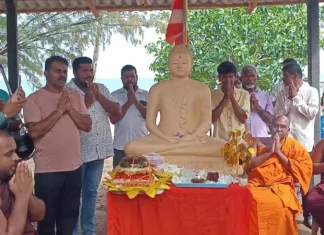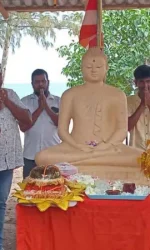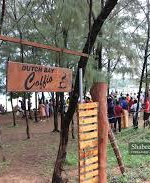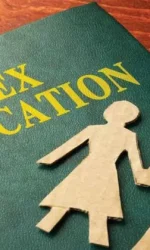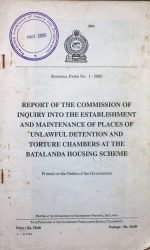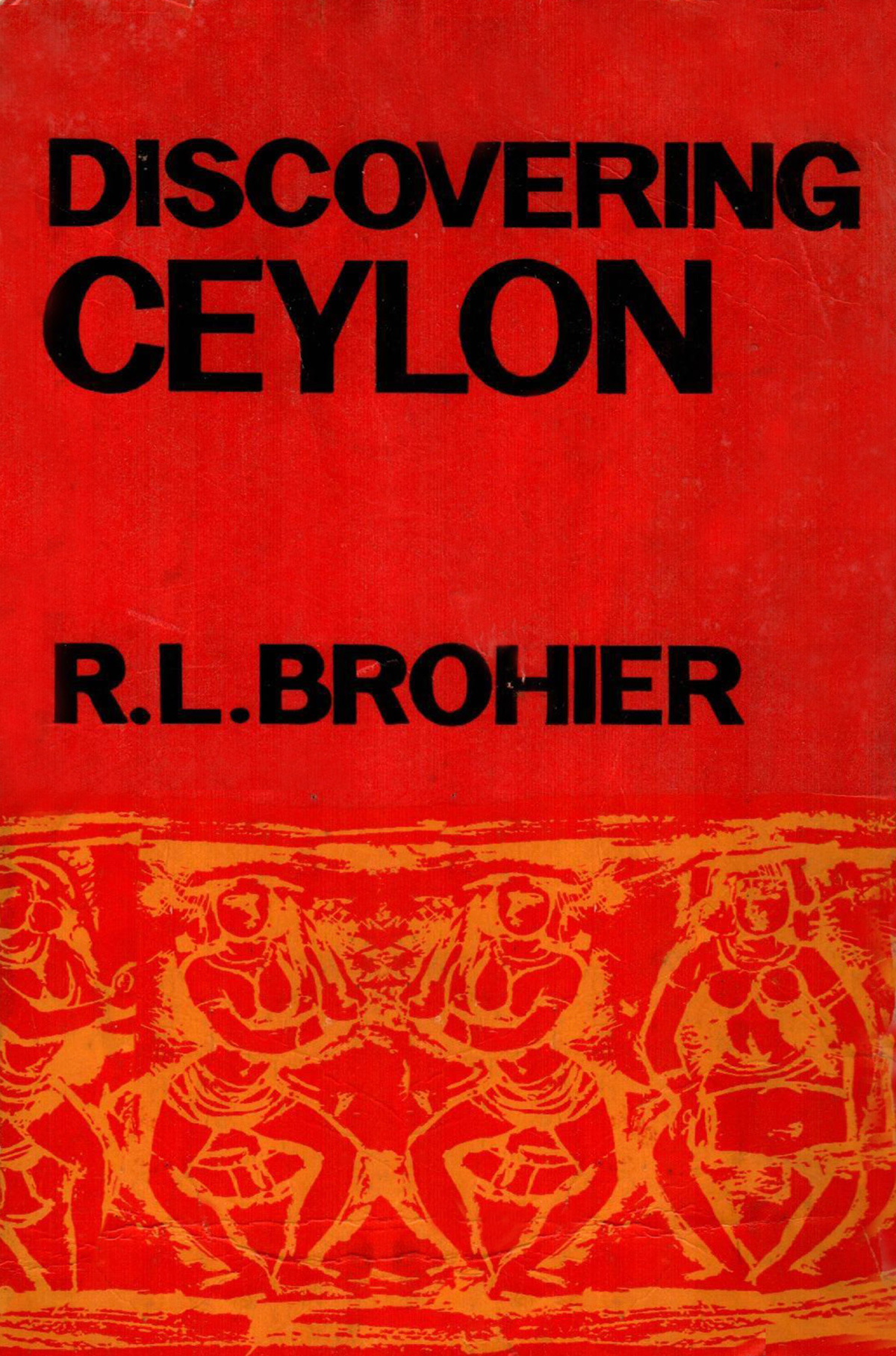FASHION WEEK
- All
- 2019 Presidential Election Sri Lanka
- 2020 General Election Sri Lanka
- 2021 Ishalini's Death
- 2021 Port City Bill
- 2022 Gota Go Home
- 2024 Presidential Election
- 20th Amendment
- 46th session of the Human Rights Council
- 50 days Political upheaval in Sri Lanka
- About
- Ama H. Vanniarachchy
- Archaeology
- Archaeology
- Article
- Biography
- Bond Scam Sri Lanka
- Buddhist monks
- Civil War
- Container 323
- Cultural
- Dollar Crisis Sri Lanka
- Dr. Sarath Weerasekera
- Easter Sunday attacks
- Education
- Election Manifesto
- Events
- F.R. Jayasuriya Foundation
- F.R.Jayasuriya
- featured
- Fertilizer Crisis Sri Lanka
- Gas Explosion
- Highways and Bridges
- Historical
- International
- Keerthi Jayasuriya
- Magazine
- News
- Novel
- Official Language Debate
- Other
- Palitha Senanayake
- Places
- Political
- Politics
- Port City
- Prasad Powatte
- Ranjan Ramanayake leaked
- Religious
- Report
- Review
- Sport
- Sports
- Thissa Viharaya, Jaffna
- trincomalee buddha statue
- Underworld
- video
- World affairs
- දෙව්සිරි පී. හේවාවිදාන
DON'T MISS
- All
- 2019 Presidential Election Sri Lanka
- 2020 General Election Sri Lanka
- 2021 Ishalini's Death
- 2021 Port City Bill
- 2022 Gota Go Home
- 2024 Presidential Election
- 20th Amendment
- 46th session of the Human Rights Council
- 50 days Political upheaval in Sri Lanka
- About
- Ama H. Vanniarachchy
- Archaeology
- Archaeology
- Article
- Biography
- Bond Scam Sri Lanka
- Buddhist monks
- Civil War
- Container 323
- Cultural
- Dollar Crisis Sri Lanka
- Dr. Sarath Weerasekera
- Easter Sunday attacks
- Education
- Election Manifesto
- Events
- F.R. Jayasuriya Foundation
- F.R.Jayasuriya
- featured
- Fertilizer Crisis Sri Lanka
- Gas Explosion
- Highways and Bridges
- Historical
- International
- Keerthi Jayasuriya
- Magazine
- News
- Novel
- Official Language Debate
- Other
- Palitha Senanayake
- Places
- Political
- Politics
- Port City
- Prasad Powatte
- Ranjan Ramanayake leaked
- Religious
- Report
- Review
- Sport
- Sports
- Thissa Viharaya, Jaffna
- trincomalee buddha statue
- Underworld
- video
- World affairs
- දෙව්සිරි පී. හේවාවිදාන
Sri Lanka cabinet clears plan allow new foreign fuel distributors
ECONOMYNEXT – Sri Lanka’s cabinet of ministers has cleared a proposal to allow companies in oil producing countries to distribute fuel as the country is in the grip of a monetary meltdown triggered by mis-targeting of interest rates by a intermediate regime central bank.
At the moment 90 percent of fuel distribution is done by state-run Ceylon Petroleum Corporation and about 10 percent by Lanka IOC.
“Due to the currency crisis faced by Sri Lanka it is a big challenge to supply oil without interruption,” a statement issued after the weekly cabinet meeting said.
“In that situation it is seen as advisable to allow companies in oil producing countries to import and distribute oil using their own resources, without putting pressure on foreign currency problem.”
“The cabinet has approved a proposal by the Minister of Power and Energy to enter into long term agreements with companies selected through an orderly process.”
Energy Minister Kanchana Wijesekera said on June 25 that players may be given 200 to 300 filling stations out of the 1,190 fuel stations operated by state-run Ceylon Petroleum Corporation.
Related
Sri Lanka plans to allow more fuel distributors
However they have to import and distribute oil on credit for 6 to 12 months, he said.
Sri Lanka has a habit of importing oil on credit and selling every time the soft-pegged central bank prints money to mis-target interest rates and triggers currency trouble. The CPC is already heavily indebted due to the soft-pegging and borrowings.
Related
Shock revelation on how Sri Lanka’s CPC ended up with billions of dollar debt
On June 27, a group of CPC workers held Energy Ministry Secretary Mapa Pathirana hostage inside his vehicle and blocked his vehicle from leaving his office in a protest against the privatization plan.
Sri Lanka has had foreign exchange trouble ever since a soft-pegged central bank was set up in 1950 but the current meltdown is the worst in its history.
The rupee has fallen from 200 to 360 to the US dollar in a botched attempt to float the currency since March 2022.
The currency is still under pressure due to money printing. (Colombo/June27/2022)
LATEST NEWS
ත්රිකුණාමලය වෙරළේ පන්සලක් ඉදි කිරීම: ‘කඩා ඉවත් කරන්න ගියේ නීති විරෝධී හෝටලයක්’
ත්රිකුණාමලයෙ ප්රශ්නය – බුදු කුටියක් ඉදි කිරීම
ශ්රී ලංකාවේ පුළුල් ලිංගික අධ්යාපනය(CSE) සහ ලිංගික දිශානතිය සහ ස්ත්රී පුරුෂ භාවය පිළිබඳ අන්තර්ගතය(SOGI)...
POPULAR ARTICLES
බටලන්ද කොම්සම් සභා වාර්තාව
Sri Lanka imposes record 13-hour power cut for March 31
ECONOMYNEXT – Sri Lanka’s state-run Ceylon Electricity Board (CEB) has imposed up to 13-hour power cut for Thursday (31) as acute diesel shortage has compelled the utility provider to increase the duration of power cuts from the previous day’s 10 hours.
The CEB has decided to cut power from 12am to 8am for the first time in the ongoing power crisis.
Areas ABCDEF and PQRS will see 3 hours of power cut from 3am to 6am, 4 hours from 12pm to 4pm and 6 hours from 6pm to 12am.
Areas GHIJKL and TUVW will experience 3-hour power cut from 12am to 3am, 4 hours from 8am to 12pm and 6 hours from 4 pm to 10pm.
Areas MNOXYZ, however, will witness only 5.5-hour power cut – 3.5-hour interruption from 5.30am to 9am and 2 hours from 4pm to 6pm.
Download the power cut schedule for March 30 from
Though the government has said the duration of the power cuts will be reduced gradually, the power cut has been extended mainly due to lack of fuel amid severe shortage of US dollars.
The lack of fuel also has resulted in large queues for diesel and petrol despite record price hikes. (Colombo/ March 30/2022)
Two more die in Sri Lanka fuel queues amid shortage
ECONOMYNEXT – Two Sri Lankans died in fuel queues over the weekend, police media said on Monday (11), bringing the death toll in fuel queues to seven since March 31.
Both death had occurred due to heart attack after being waiting in the queues for a long time.
“The two deaths earlier were due to heart attacks. They were on medications,” Police Spokesman Nihal Thalduwa told Economy Next.
A 47-year old private bus driver from Gonawila died on Saturday (09) while waiting in the fuel queue. Eyewitnesses had said that the man collapsed on the street.
The second death took place on Sunday (10) morning and a 52-year old tourist guide of Kochchikade died. Police media stated that the man had filled his tank and gone about 10 meters before he was found dead in his vehicle.
Of the previous five deaths, four were of senior citizens who died of natural causes, the fifth, a 29-year old man was stabbed to death following an argument while waiting in a fuel queue.
People standing in fuel queues, cans in hand, has been a common sight in recent weeks as Sri Lanka’s fuel shortages worsen amid a worsening forex crisis.
People have been seen collecting extra fuel in fear of future shortages.
Authorities say panic buying is making the problem worse when fuel is available and a continuous supply is to be ensured through a 500 million US dollar Indian credit line.
Severe shortage of foreign currency has reduced the fuel import and that in fact had led to shortage and extended power cuts as high as 13 hours in a day.
Sri Lanka is facing multiple crisis simultaneously – power cuts, shortages of essentials, and a sharp depreciation of the rupee following the float.
Thousands of Sri Lankans have taken to the streets to protest the Government’s mishandling of the economy, organized via social media. Hundreds of protesters have occupied a protesting site next to President Gotabaya Rajapaksa’s office for the third day on Monday. (Colombo/April 11/2022)
